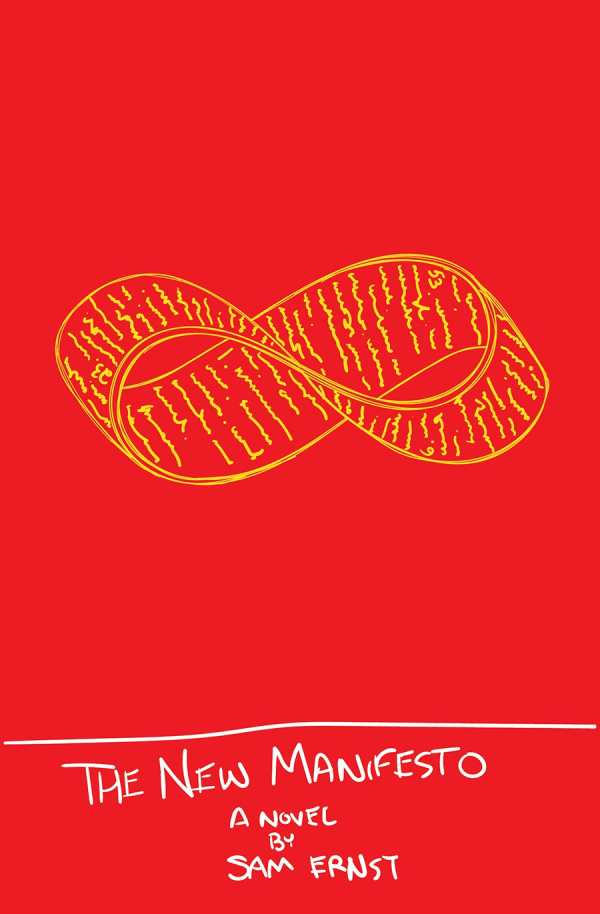The New Manifesto
Or the Slow Eroding of Time
You will never read a book quite like Sam Ernst’s experimental novel The New Manifesto, whose wildly creative, careening story defies expectations.
Described as the first and only novel by prolific biographer Arthur B. Johnson, the narrative morphs from a boisterous account of a Zelig-type adventurer into a futuristic fantasy, and then into introspective metafiction. A third of the book traces the exploits of James Gordon Brecht, who rows across the Straits of Gibraltar to deliver a scrap of paper from a demised passenger pigeon, wanders the Yugoslavian mountains with Roma, romances a French stargazer, and advances theories of quantum mechanics. Brecht’s story is the most conventional part of the novel; intertwined with it are passages wherein Johnson describes his writing process, mixed with excerpts of a post-apocalyptic memoir written after an asteroid strike.
In the end, a labyrinthine maze offers dozens of forking choices for a writer traveling home from the office, such as the option to turn to one page if “you choose to speed toward the chaos…to recover the only extant draft of your novel,” or another “if you choose to go home to cry yourself to sleep.” This circuitous work is studded by wry humor, as with a sub-subplot about Annabelle, whose “perspective on life” even as a child foreshadows “her unexpected coma.” She wants to become an artist, “[a] writer, or perhaps a documentary filmmaker,” but instead enrolls in a “rigorous training program” to become a bus driver after an aptitude test determines her destiny. She falls into a rare lucid coma and records her outrageous dreams about burning cities and falling squirrels.
Is The New Manifesto a statement about post-modernist fiction, the unifying voice of the narrator, or the power of subverting expectations? The reader is left to puzzle it out, guided by a text that’s both inventive and challenging.
Reviewed by
Kristen Rabe
Disclosure: This article is not an endorsement, but a review. The publisher of this book provided free copies of the book to have their book reviewed by a professional reviewer. No fee was paid by the publisher for this review. Foreword Reviews only recommends books that we love. Foreword Magazine, Inc. is disclosing this in accordance with the Federal Trade Commission’s 16 CFR, Part 255.

